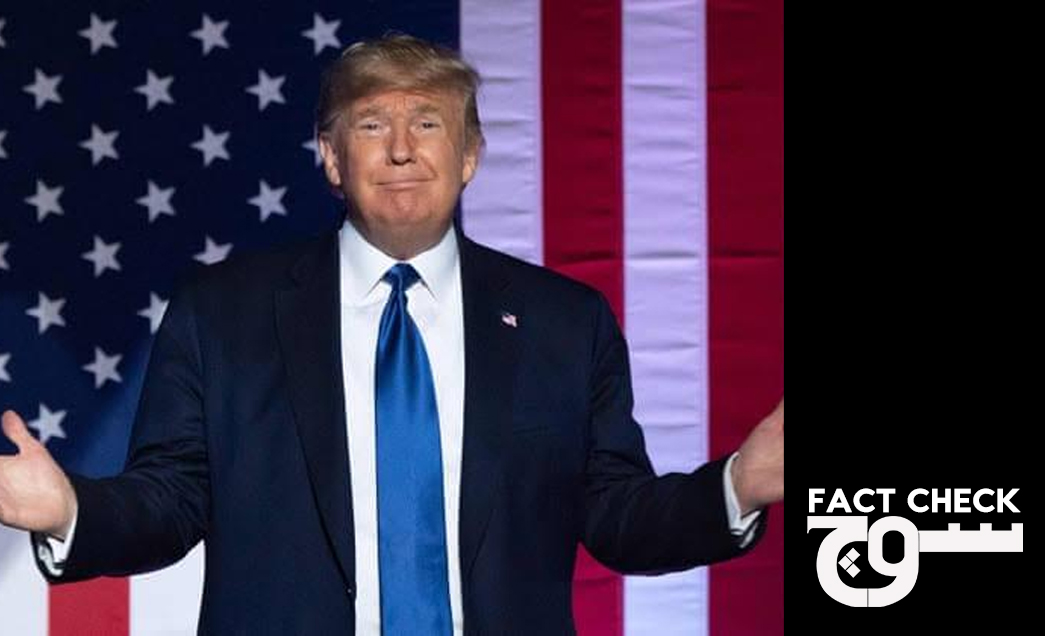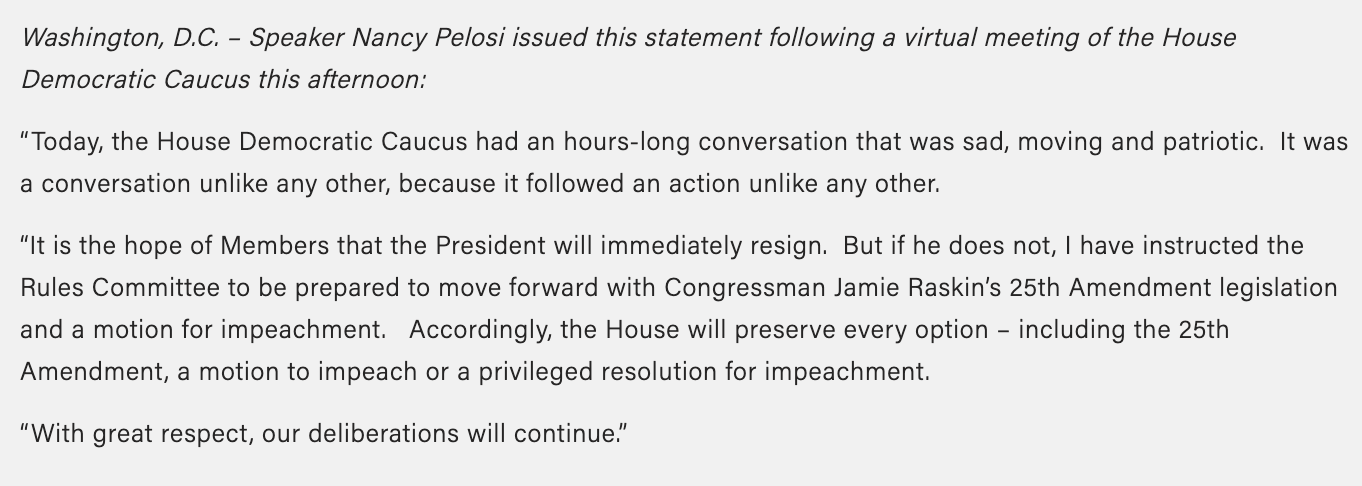
Claim: US President Donald Trump has been impeached by Congress, and will now have to step down from the office of president.
Fact: The lower house of the United States Congress, i.e. the House of Representatives, has passed an article of impeachment against Trump. The matter will now be presented before the upper house, the Senate, as a trial, who will then either find him guilty or acquit him.
Background:
On 14 January, the House of Representatives of the United States of America impeached President Donald Trump in Washington DC, making this the first time the House has impeached a president twice. The decision came following riots in DC on 6th January, when protestors stormed and broke into the US Capitol Complex.
The mob marched to Capitol Hill while Congress was in the process of certifying election results that confirmed Joe Biden as the United States’ President-elect. The mob were coming directly from a “Save America” rally where Trump repeated claims that election results had been falsified and encouraged them to, “walk down to the Capitol,” telling them, “if you don’t fight like hell, you’re not going to have a country anymore.”
The next six hours saw Trump supporters violently clashing with supporters at Capitol Hill, breaking into the US Capitol Complex, and storming into Congress offices and chambers in what now being called a “siege”. Capitol police were forced to use tear gas inside the building and the National Guard eventually had to be brought in. The violence resulted in at least four deaths.
Trump’s speech right before the riots, and his insistence in the days leading up to them that the elections had been rigged and “stolen” from him, has led many to hold him responsible for the violence that unfolded at Capitol Hill.
On 8 January, Nancy Pelosi, Speaker of the House of Representatives, released the following statement:

Speaker Pelosi’s statement
On 11 January, Democratic Representative David Cicilline moved a resolution of impeachment against Trump, stating that he, “gravely endangered the security of the United States and its institutions of Government,” and, “threatened the integrity of the democratic system”. Within hours, Trump had been impeached by the House of Representatives for a second time, this time with the support of ten Republicans from his own party.
What exactly is impeachment?
Soch Fact Check noticed some social media users, specially those unfamiliar with the US political system, are confused about what exactly impeachment is. Trump being impeached does not mean he has been removed from office or is barred from holding any public office again. The United States Congress is divided into two bodies, i.e. the House of Representatives and the Senate. According to the United States Constitution, the House exclusively holds the power to pass resolutions of impeachment against the president. The Senate, however, holds the exclusive power to “try all impeachments”.
Thus, now that the House has passed a resolution of impeachment against Trump, with the simple majority that is required, it must now go to the Senate. The matter will be presented as a trial to the Senate, which will act as a jury, with a chief justice presiding over the proceedings. Speaker Pelosi will choose a committee of representatives from the House itself, called “managers”, who will act as prosecutors in this trial. Trump will choose a team of lawyers to represent his defense. A two thirds majority will be needed to find him guilty.
Senate Majority Leader Mitch McConnel has announced that he will not be calling the Senate into session till 19 January, the last day of Trump’s term as president. Considering that the trial is likely to take days, even weeks, the Senate’s decision is trial could result in Trump being barred from holding office again, since he will already have stepped down from the office of president. If he is found guilty, he will not be able to appeal this judgement.
On 12 December 2019, Trump was impeached for the first time, following a two and a half month inquiry. When the trial was presented in the Senate, however, he was acquitted after a three-week trial and continued to hold his office.
Previously, three presidents have been impeached by the House of Representatives: Bill Clinton in 1998, Richard Nixon in 1973, and Andrew Johnson in 1868. Clinton and Johnson were acquitted by the Senate and continued to hold office, while Nixon quit before his trial was concluded.
Summary: In the United States, when the lower house of the Congress, i.e. the House of Representatives, passes a resolution of impeachment against the president, it does not mean that they have been removed from office. The matter is presented before the upper house, i.e. the Senate, who then decides whether the president will be impeached or whether they will be acquitted and continue to hold office.
